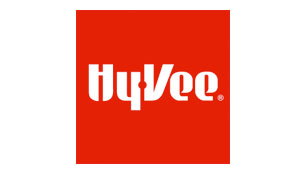National, state manufacturing groups voice opposition to proposed corporate tax increase for infrastructure investments

Proposed tax increases under consideration in Congress would lead to 1 million job losses in the first two years after implementation and economic harm, according to a study released Friday by the National Association of Manufacturers. The increases include raising the corporate tax rate to 28%.
However, the study, commissioned by NAM last year, does not consider the economic impact that massive infrastructure spending that’s coupled with the proposed tax increase in the American Jobs Plan would have on the U.S. economy, the organization’s chief economist, Chad Moutray, acknowledged. NAM partnered with Rice University economists John Diamond and George Zodrow, to conduct the study.
NAM released a report two years ago, “Building to Win,” that called on Congress to consider immediate infrastructure spending, citing studies that said spending would create millions of jobs. Their proposal calls for funding the investments not with corporate tax increases but with bond financing and user fees.
The new NAM study shows repealing tax reform measures (and applying those revenue increases to a proportional increase in government transfer payments, not including Social Security) will lead to negative consequences that include:
•600,000 average jobs lost each year over the next decade.
•$117 billion loss in gross domestic product over the first two years.
• A decline in investments in equipment and structures by $80 billion over the first two years.
•A reduction of $662 in wage income per household coupled with an increase of $686 in transfers per households two years after enactment (assumed in 2021).
“This study published by NAM showing 1 million lost jobs due to the tax increases proposed in the federal infrastructure bill will send Iowa’s economy in the wrong direction,” Mike Ralston, ABI president, said in a news release. “Iowa’s manufacturers and businesses are coming out of the pandemic, but this proposed setback will hamper employers’ efforts to help Iowans return to the workforce. It will also hurt Iowa’s economic recovery by costing Iowans jobs and decreasing their wages and benefits.”
Biden’s proposal, dubbed the American Jobs Plan, includes roughly $2 trillion in spending over eight years. The White House offered a 15-year path to funding the plan, in part by raising the corporate tax rate to 28%, as reported by CNBC. Republicans had reduced the levy to 21% from 35% as part of former President Donald Trump’s 2017 tax law. Biden said Wednesday that he is open to negotiation on the level of increase in the tax rate, CNBC reported.
On April 1, NAM President and CEO Jay Timmons issued a statement voicing support for the infrastructure improvements called for in the American Jobs Plan, which was announced on March 31.
“President Biden’s clear focus on strengthening manufacturing and the workforce of the future shows that he is truly committed to building the next post-pandemic world — one that is stronger and more resilient than in pre-pandemic times,” Timmons wrote.
Rather than raising taxes, Timmons said infrastructure rebuilding could be achieved “through a combination of revenue sources like those we identified in the NAM’s ‘Building to Win’ plan,” which includes user fees and bond financing for capital projects. “We also know that making the men and women who make things in America pay for the infrastructure projects that will benefit all Americans just doesn’t make sense and would harm their future,” he said.
Some of those proposals in NAM’s “Building to Win” plan are increases in gasoline and diesel taxes, higher passenger facility charges at airports, mileage-based user fees on all private and commercial vehicles and trucks, and a federal vehicle registration fee on top of state vehicle registration fees, among others.
In the “Building to Win” report published in February 2019, NAM advocated for infrastructure investments, citing a report that a $1 trillion investment in infrastructure could create 11 million jobs:
“Millions of jobs are at stake when infrastructure remains deteriorating and inadequate. Without immediate action on the infrastructure crisis, the United States will lose more than 2.5 million jobs by 2025 and more than 5.8 million by 2040. By contrast, infrastructure investments can create jobs in the near term, setting off a positive ripple effect across industries. A 2017 PricewaterhouseCoopers report highlights that a $1 trillion infrastructure investment could create 11 million jobs. Approximately 10 percent of infrastructure jobs would be in manufacturing with specific needs for skilled workers in fields such as information technology and data science. Construction and manufacturing jobs have a powerful multiplier effect on our economy; for every $1.00 spent in manufacturing, the economy grows by $1.89.”
NAM economist Moutray told the Business Record he believes it was important for NAM to issue the study results on the impact of a tax increase, even though it doesn’t consider the gains that infrastructure spending would have for the economy.
“The issue here isn’t so much the spending, it’s how do you pay for it?” Moutray said in a phone call on Friday. “The reality is, it’s been proposed for taxes to go up, and we wanted to document the cost of that. Regardless of what you’re using those dollars for, there is a cost associated with that, and that is a useful conversation.”
In the news release issued Friday, NAM officials said the Tax Cuts and Jobs Act of 2017 helped manufacturers add 263,000 jobs nationally – the best year for job creation in manufacturing in just over two decades.
“After decades of advocating for a tax system that provided competitive rates and modern international tax provisions, Iowa manufacturers kept their promises following the enactment of the 2017 tax reforms: raising wages and benefits, hiring more American workers, and investing in their communities,” Timmons said in the statement released Friday
“If we undo those reforms, all of that will be put at significant risk. Iowa manufacturing workers will lose out on jobs, growth and raises. We should be building on that progress, not rolling it back. But the conclusion of this study is inescapable — follow through with tax hikes that give other countries a clear advantage and we’ll see far fewer jobs created in America.”










